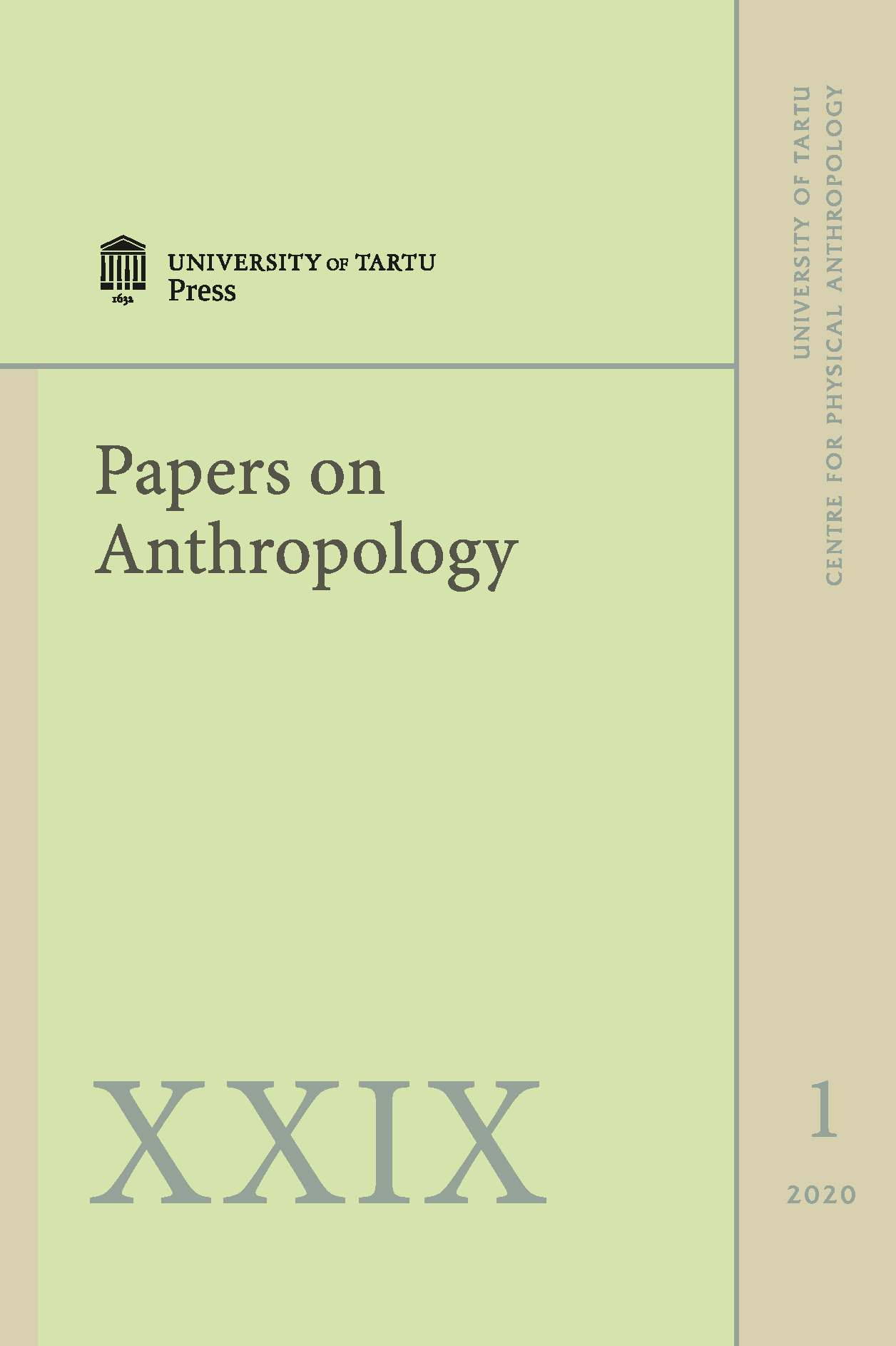Life quality of injured defence forces veterans who play sitting volleyball
DOI:
https://doi.org/10.12697/poa.2020.29.1.06Keywords:
sitting volleyball, injured war veterans, health, social life, rehabilitation, recreational activitiesAbstract
The purpose of the study was to analyse the life quality and changes in it throughout three different periods in Estonian injured war veterans’ life (before the injury, after the injury and after starting to play sitting volleyball). The main questions the veterans were asked concerned the positive and negative aspects of sitting volleyball, the effect of sitting volleyball on their health and social life, the motivating factors for participating in athletic activities, and whether the rehabilitation process followed the national strategies. The interviewees were nine male injured Estonian Defence Forces war veterans who play sitting volleyball. Veterans’ subjective assessments of life quality were examined with paired samples t-test in SPSS program to find the mean values of veterans’ assessments. The results of the study reveal that it is very important for the disabled to socialise through team sports. The support of family and friends, also setting smaller result-oriented goals help to keep discipline, contribute to a feeling of belonging and self-esteem, and all these help the veterans to get back on track after life-changing injuries. In conclusion, the analysis of the life quality of nine Estonian war veterans revealed that the decrease of mean values after the injury was significant [t = 6.825 (p < 0.001)], and the increase after they started playing sitting volleyball was also significant [t (8) = –8.083 (p < 0.001)].
According to the study, Estonian war veterans found many positive aspects in playing sitting volleyball, which affected their quality of life. The main aspects were team spirit, feeling of usefulness, improvement of balance, physique and health, setting goals and achieving results in sports, sharing their problems with others involved and that other people respected their ability to play instead of looking at their injuries. The most important aspect was better social life. The factors that motivated veterans to continue their rehabilitation were support by family and friends, self-growth, teammates and other injured veterans. The Estonian Defence Forces support veterans thoroughly and introduce them to different sports including sitting volleyball during their rehabilitation. By doing that, the Defence Forces fill the requirements of national strategies to help veterans return to their regular lifestyle. The current study could be helpful for veterans for making better and more informed choices in rehabilitation after the injury and faster return to their desired quality of life. The results could also help to improve the restoration of health and social life. The results are helpful for the development and popularisation of sitting volleyball in Estonia.

